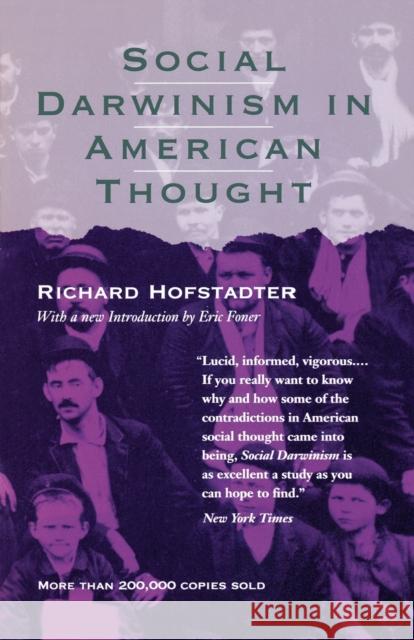Social Darwinism in American Thought » książka
Social Darwinism in American Thought
ISBN-13: 9780807055038 / Angielski / Miękka / 1992 / 288 str.
Social Darwinism in American Thought portrays the overall influence of Darwin on American social theory and the notable battle waged among thinkers over the implications of evolutionary theory for social thought and political action. Theorists such as Herbert Spencer and William Graham Sumner adopted the idea of the struggle for existence as justification for the evils as well as the benefits of laissez-faire modern industrial society. Others such as William James and John Dewey argued that human planning was needed to direct social development and improve upon the natural order. Hofstadter's classic study of the ramifications of Darwinism is a major analysis of the social philosophies that animated intellectual movements of the Gilded Age and the Progressive Era.
Are society’s disadvantaged doomed to get “selected out” of the economic pool? Is America’s social landscape a battleground for “survival of the fittest, where only the strong endure? Once again, biology is being used to explain human development, and right-wing ideologues claim reluctance to intervene in the “natural” workings of the economy. Richard Hofstadter’s now-classic work offers important insight into how ideas borne out of evolutionary theory continue to effect American values. Tracing the impact of Darwin on thinkers throughout the Gilded Age and the Progressive Era, Social Darwinism shows how a politically neutral scientific theory has been adapted with skillful rhetoric to contradictory purposes.











